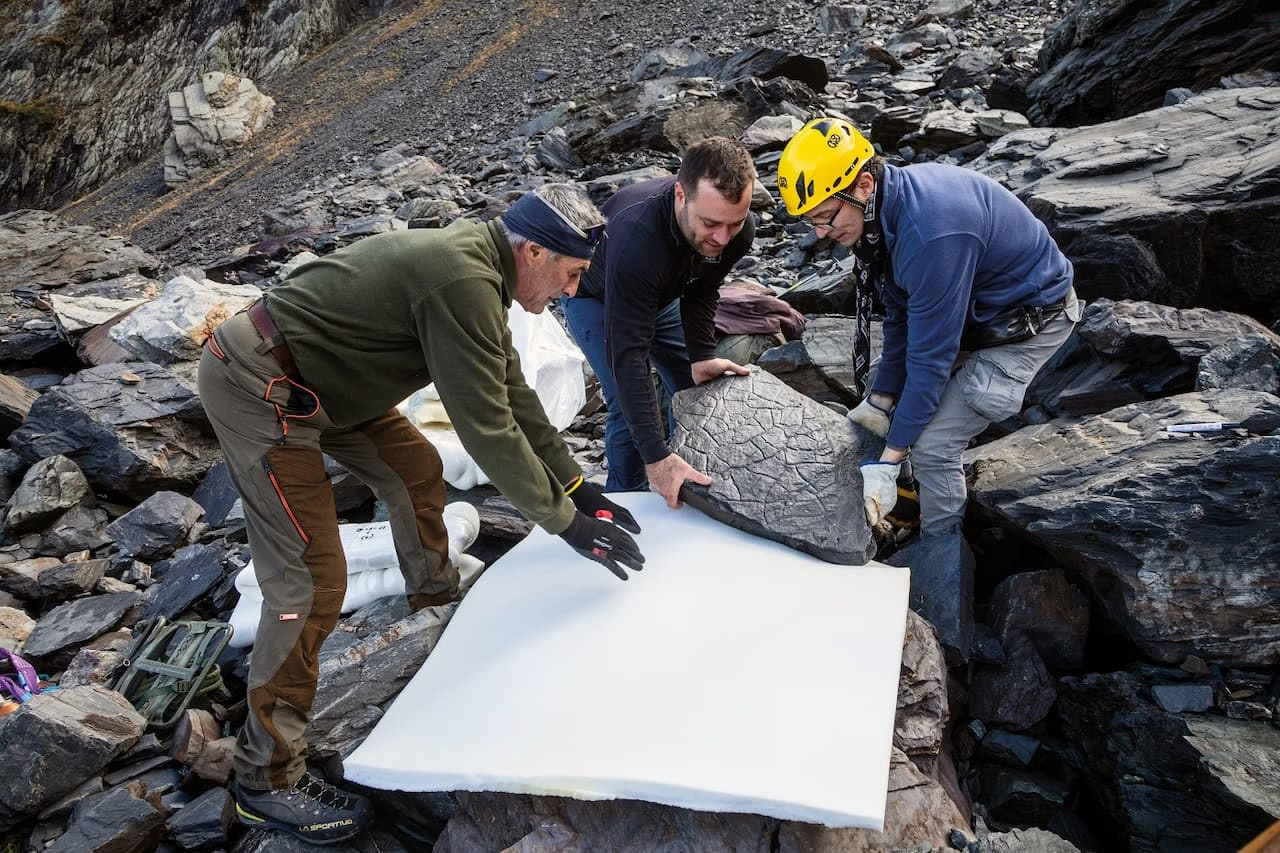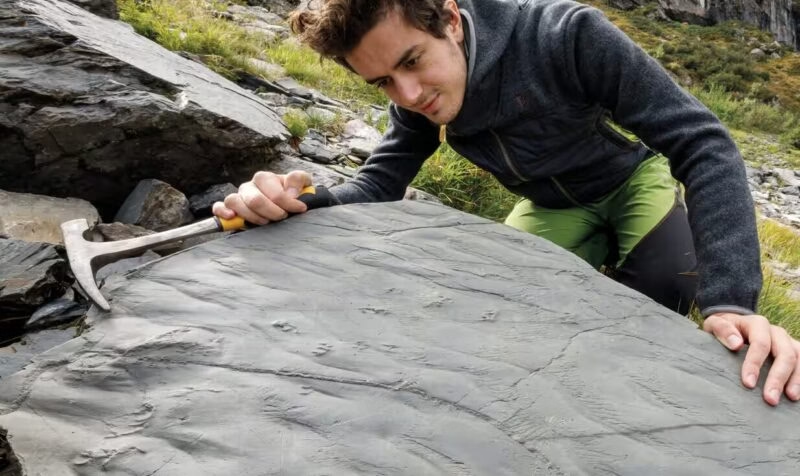A hiker’s discovery reveals a lost world with an ancient 280-million-year-old ecosystem!

In 2023, a remarkable discovery was made by Claudia Steffensen while hiking in the Italian Alps. While trekking through the Valtellina Orobie Mountains Park in Lombardy with her husband, Steffensen spotted a light gray rock covered in unusual markings. Upon closer inspection, she realized the designs were prehistoric animal tracks, setting the stage for an extraordinary scientific breakthrough.
A Prehistoric Find: Animal Tracks from the Permian Period
Steffensen’s photos of the strange markings were sent to a research team, who identified them as footprints from a prehistoric reptile that roamed the Earth during the Permian period, which occurred between 299 million and 252 million years ago. This period predates the dinosaurs, offering scientists a glimpse into a world long lost to history.

Further investigation of the area led paleontologists to hundreds of additional fossilized footprints from at least five different species of ancient reptiles, amphibians, and insects. Some of the animals were notably large, measuring between six and 12 feet long.
Remarkable Preservation of Fossils
The fine details of the fossils, including claw marks, belly skin imprints, and even fingernail impressions, were preserved in stunning clarity. Paleontologists attribute this impressive preservation to the proximity of water during the Permian period. The footprints were created in wet, muddy environments along riverbanks and lake margins, which later dried out and hardened. As new water layers covered them, they sealed the footprints, protecting them for millions of years.

A Window into an Ancient Ecosystem
In addition to animal footprints, the team discovered plant fossils, including seeds, leaves, and stems, as well as imprints of raindrops and waves on an ancient lake’s shores. This rich fossil deposit offers a rare look into an ancient ecosystem that was home to life forms prior to the dinosaurs, providing critical insight into the biodiversity of the time.

Climate Change’s Role in the Discovery
Interestingly, modern-day global warming played a key role in uncovering this lost world. As Earth’s climate warms, glaciers in the Alps have melted, exposing the fossils that were previously hidden beneath layers of snow and ice. The melting of glaciers has revealed fossilized remains that would otherwise remain inaccessible, making this discovery a paradoxical consequence of climate change.
Lessons from the Past: A Warning for the Future
This ancient ecosystem serves as a poignant reminder of the impact of climate change. The Permian period’s rapid warming led to a mass extinction event that wiped out 90% of Earth’s species. The fossils found in the Italian Alps are a testament to a time of extreme climate change, offering a powerful parallel to the global warming occurring today. As scientists study these ancient remnants, they stress the importance of learning from the past to avoid repeating history.






